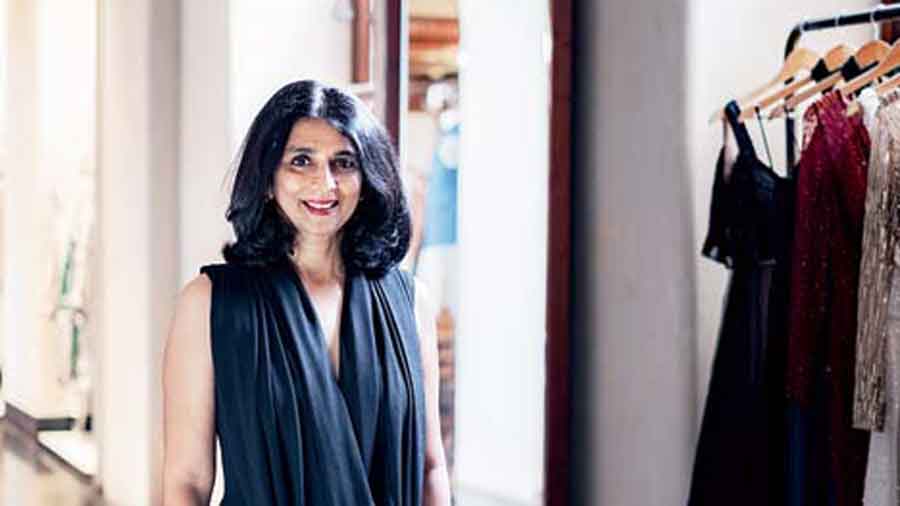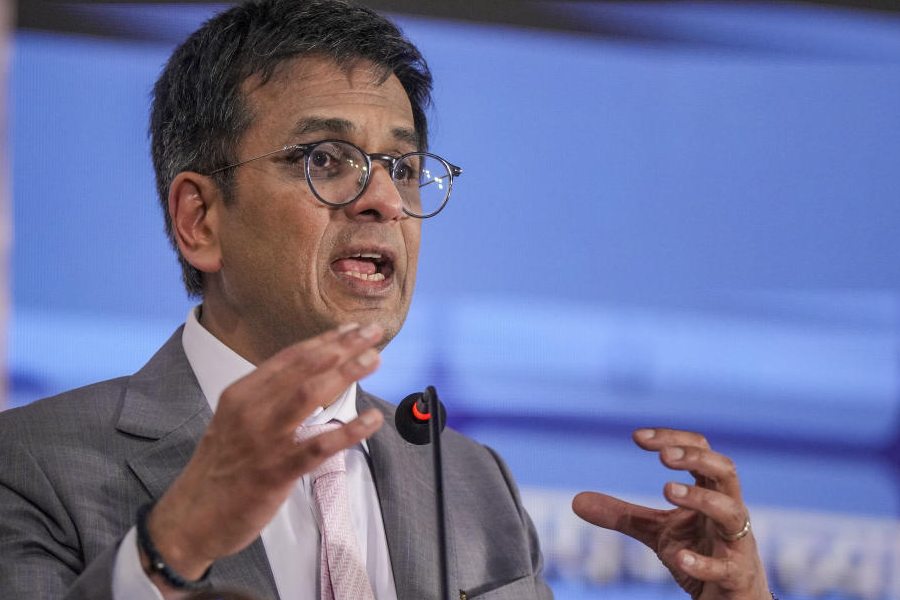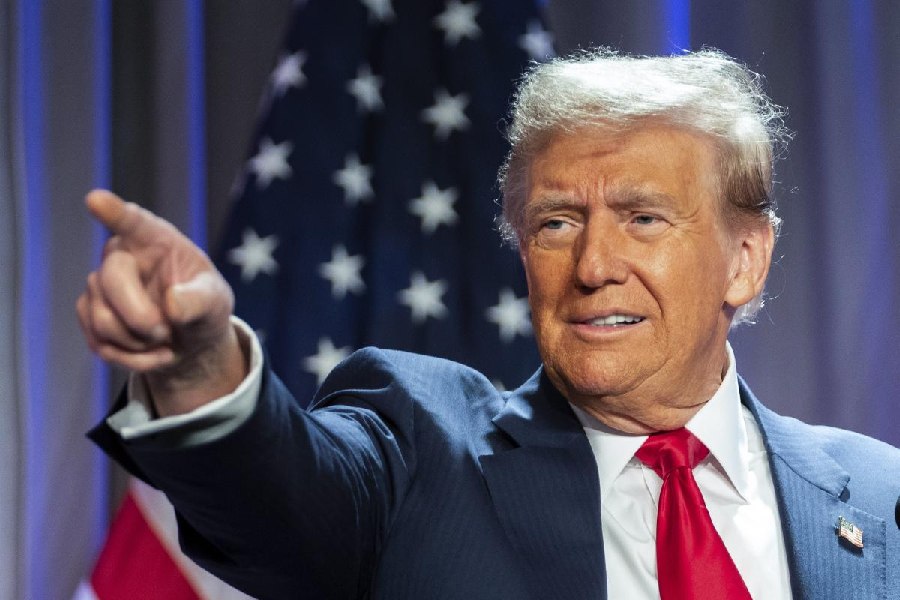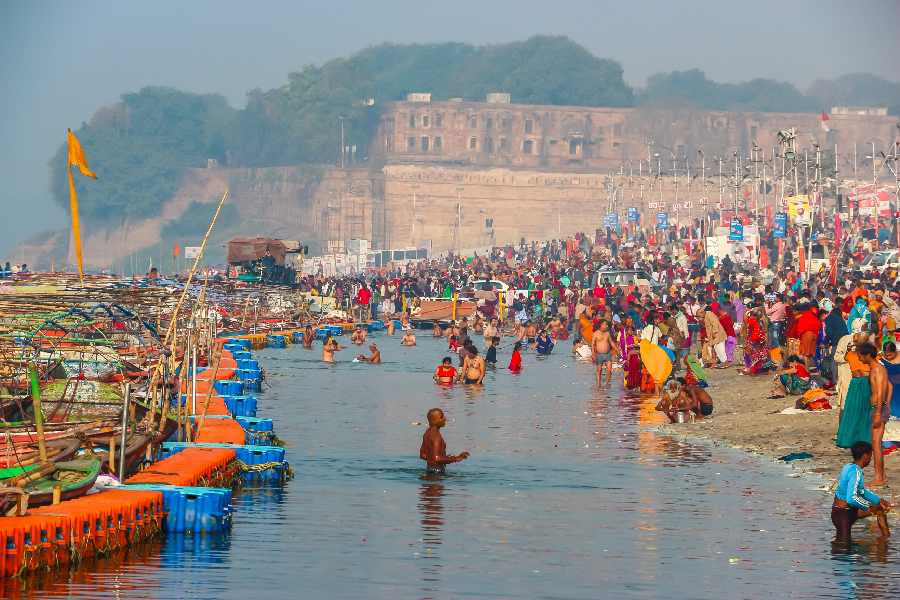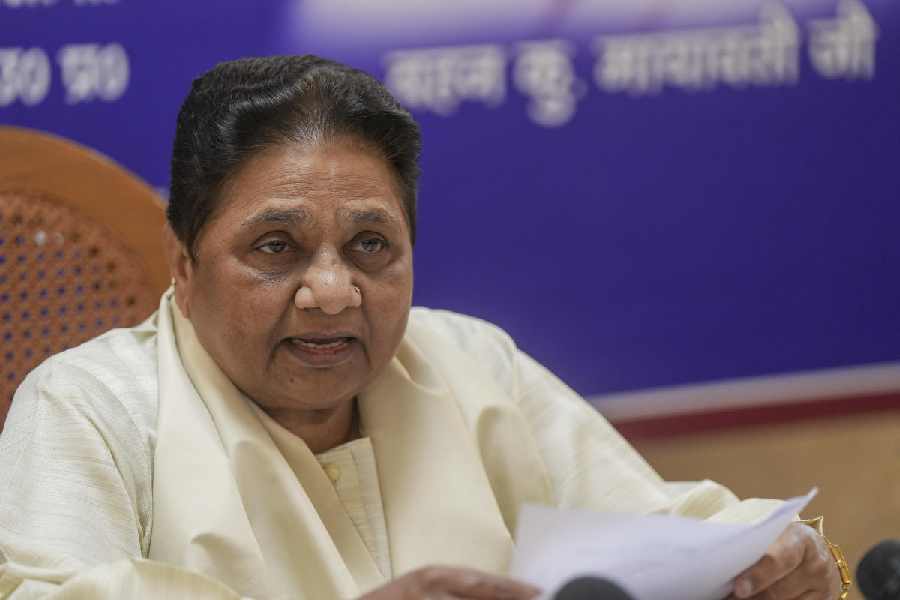Baradari’s Instagram bio sums up the soul behind the initiative. ‘Narrowing the gap between designers & artisans’. And, puts a smile on the faces of the extended family of weavers and embroiderers in India, left bleeding by a pandemic and a cyclone. Namrata Zakaria is the force behind the fundraiser, with Kareena Kapoor Khan as the patron. Tina Tahiliani Parikh, owner and co-founder of multi-designer store, Ensemble, and Pareina Thapar, co-founder, Longform India, are partners.
The Telegraph caught up with Tina ahead of the fundraiser which will be aided by Ensemble, on what to expect at Baradari, the future of fashion and what’s been the more-than-three-decade old “destination” store’s coping mechanism.
As an entrepreneur, how much has life changed in these four months?
As an entrepreneur, life has changed a lot. Our world has turned upside down in many ways. Business came to a complete and grinding halt for about almost three months and restarting it and ensuring our customers feel safe and comfortable in our stores has been a very slow process in which we have had to put in our all.
However, as an entrepreneur, you rarely get such a long period of time to halt, think about your strategy, think about all the various factors that are going into making your enterprise either successful or not successful. So in that sense I think that there has been a silver lining to this incredibly stressful time, as I had the privilege to be able to use this time to work on making our systems and brand stronger.
What has forever changed for you as far as fashion is concerned?
In some way for me, this Covid-19 crisis is linked to the cavalier attitude to which us human beings have started disregarding our environment for our immediate gain. I have become very sensitive about my carbon footprint. To live with a little bit of sensitivity and to think about the long-term over the short-term and to source local is a much wiser way to live life.
I have also used this time to educate myself on the fashion industry being the second most polluting industry in the world and although that actually is more relevant to fast fashion, I am much more conscious of our designer supply chains. It is going to be one of our missions to promote the re-wear revolution and help and show clients how to re-wear their pieces in different ways instead of just once or twice.These philosophical changes in my head are forever going to change the way I look at my industry and the way I look at fashion.
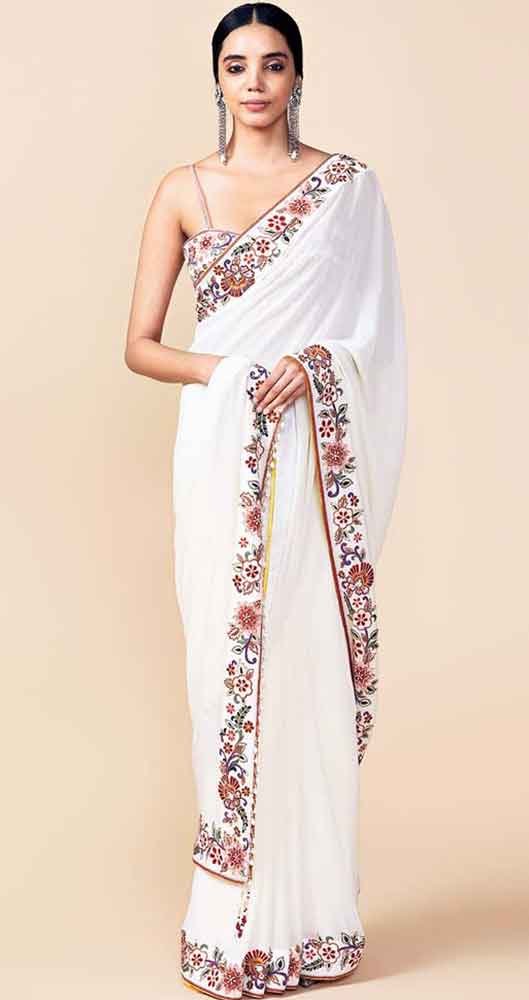
A model wearing a Tarun Tahiliani Sourced by The Telegraph
How do you think people will shop, if they shop at all?
One big thing which everybody predicted was that digital was going to be very big. We were already working on our website www.ensembleindia.com and had always aimed at launching it in the spring of 2020. We launched it within the first month of the pandemic. It is certainly going to become a big and viable part of our strategy. In other ways, people are also doing a lot of home shopping, a lot of video calls, shopping via appointments and slowly but surely people are getting the confidence to come back into the stores. Of course nothing compared to before but I think that people are getting used to this new way of life.Acceptance was the big shift that needed to occur and now that people have started accepting this new reality, they are taking risks and leaving their homes and trying to slowly but surely do some of the things that gave them comfort before. For a lot of our clients, Ensemble has been one of the first few places they visited upon reopening, as it was a controlled environment in which they felt safe, and being surrounded by beautiful things felt like a pick-me-up after being at home for so long.
Baradari is a significant step in celebrating our artisans. Is art and craft looking at doomsday? What is the future? Where lies hope?
Artisans may be impacted in the short term because a lot of the craftsmen have had to go back to their villages. In addition, designers could not produce anything for three months and even now are being circumspect about their production till they are clear of how soon the market will pick up.
I have always believed that we have to celebrate our designers for keeping art and craft still so relevant in our country and keeping it alive as opposed to so many other countries in the world who have almost exclusively embraced western fashion.This idea to celebrate and support our artisans is something that was long overdue. It is no secret that none of our designers would be nothing without our skilled craftsmen behind them, be it our weavers, embroiderers, or master tailors. Baradari is an attempt to celebrate the artisans behind this industry and give them their due. It is important to recognise that while artisans and designers are equally talented, designers have far more privilege and capital, and so they, and the rest of the community that enjoy their creations, must band together to look out for the artisans, as this will ensure that they can preserve these crafts. I think that our Baradari team have done an excellent job in doing their due diligence and figuring out artisan clusters that need genuine support.
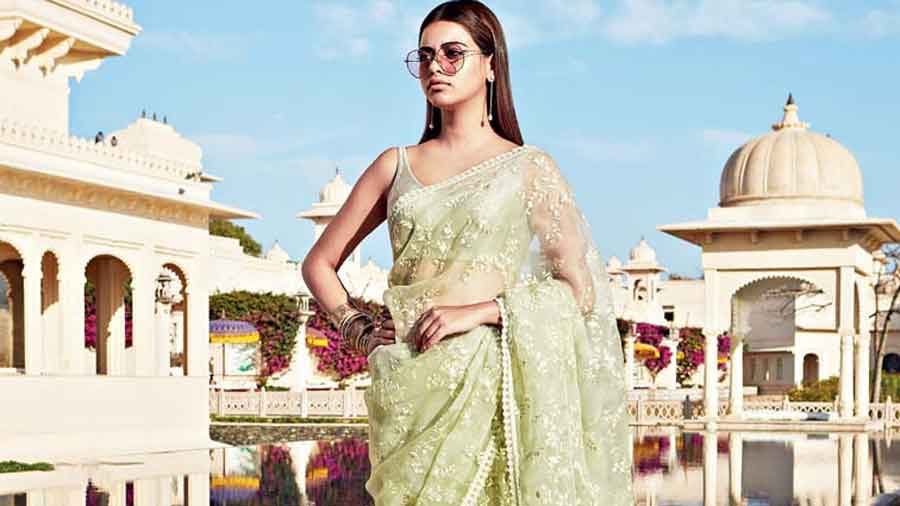
A model wearing a Sabyasachi saree Sourced by The Telegraph
Tell us about the curation...
When Namrata rang all the designers and asked them to donate two pieces each, she was very clear and particular that these were difficult times for the designers as well and we have to respect what pieces they chose to donate. She had certain parameters in terms of minimum price etc.
Ensemble brought in its sales experience in terms of guidance on sizes, talking to designers and having a dialogue with them to cajole them to give pieces that would be good for Baradari.
I really believe that this is going to be a win-win situation for the designer as well as the artisan. The curation was a mix of what the designer was happy and ready to donate coupled with what we were able to persuade them to give us after giving them perspective. After a lot of hard work, we have been able to come up with something that genuinely has something for everybody and we are quite proud of it!
What are your Baradari faves?
My favourites from Baradari are the red bandhni tunic from Injiri, the Kshitij Jalori tunic with pants with gold art deco motifs and the Bodice jumpsuit, the Rimzim Dadu top, the Antar-Agni jumpsuit, the Vaishali S top, the Amit Aggarwal pantsuit, the Shriya Som black ruffle dress, the Indigene repurposed textile jacket and the Arjun Saluja shirts and pants. I have focused on the younger designers’ donations here. I love a lot of what the senior designers have done as well!

Kareena Kapoor Khan Sourced by The Telegraph
Blurb
When Namrata Zakaria asked me to be a part of Baradari, I agreed immediately. Globally, the conversation around sustainable fashion is gaining strength. All major brands are beginning to make environment-friendly clothes or clothes that promise they were not made in a sweatshop. India needs to pick up the story of economic sustainability. Our entire fashion and apparel industries are built on the skills of our artisans. It’s time the artisans take centre stage and try to become the masters of their destiny — Kareena Kapoor Khan

